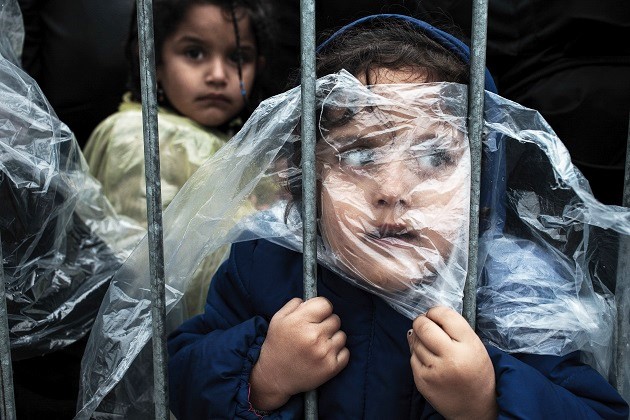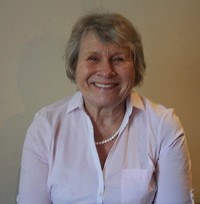What basic ideas do members of churches in Europe need to know when relating to refugees who have gone through traumatic experiences? Marion Knell (Global Member Care Network) gives some insights.
 A child is covered with a raincoat while she waits in line to register at a refugee camp in Preševo, Serbia, 07 October 2015. / Matic Zorman
A child is covered with a raincoat while she waits in line to register at a refugee camp in Preševo, Serbia, 07 October 2015. / Matic Zorman
How will the long journey, the loss of community and other traumatic experiences affect refugees in the future?
Can untrained members of churches help people who have lost almost everything? What do we need to know?
Marion Knell is head of the Board of Trustees of Redcliffe College, she coordinates the European Member Care Network and is on the leadership team of WEA's Global Member Care Network.
She believes volunteers working among asylum seekers can help, but need to “know their own limitations.” If we want to help, a good start is just to come alongside people, offering a safe environment and a listenting ear.
Read the interview with Marion Knell below.
Question. How do we recognise trauma among refugees?
Answer. We tend to use the word “trauma” rather loosely in conversation. We say “Oh, I had a traumatic time” when all what we mean is that we had a bad day.
We need to recognise that trauma is a significant psychologically distressing event outside the realms of normal human experience which causes damage either physically and/or emotionally.
The issue with refugees, of course, is that we are not talking about just about one trauma. There is trauma at the time of departure when the crisis happens (war, bombs, etc). Then, there is trauma as they leave loved ones left behind or they don’t know what has happened to them.
The journey itself is traumatic, it can involve multiple traumas. And then, post-arrival. The situation is not necessarily solved, they think they have reached a point of hope, but actually the situation in the camp may be no better and can leave them more depressed. So, there are multiple traumas we are dealing with.
Signs of trauma are pretty much what you would look for anywhere. Anxiety, flashbacks, feeling very numb, with no emotions. Physical symptoms, like stomach cramps and headaches. Depression also sets in and sometimes, and suicidal thoughts.
 Marion Knell.
Marion Knell. Q. What do untrained members of churches in Europe need to know about trauma in these cases?
A. I think the first thing for volunteers is to know their own limitations. What we are talking about here is psychological first aid, and most people don’t have mental health professionals on the spot, which would be ideal.
Obviously it would be good that we know basic facts about trauma and stress, how it affects people and therefore knowing the sort of behaviour that is being exhibited. Volunteers need to know that these people need support, friendship, food!, rest… These are people whose worldview has been totally shattered: the world was a safe place, it is now no longer a safe place.
You are dealing with issues of trust, security, fear as a response to what has happened, and fear for the future because there is uncertainty.
There is the issue of loss. You have lost people, place, community, you have lost identity. Loads of losses, and what they need probably most is someone coming alongside, providing a listening ear, support.
It is good to know who you can refer people on to when you feel you are dealing with serious cases.
Q. How could these traumatic experiences affect refugees once they have found a new place to restart their life?
A. Partly it will depend on the sort of help they have had when they arrived, the soon a support gets in place, the better. It will depend on the reception, the way they are able to integrate into society. Unfortunately, many will feel isolated even when people are welcoming them.
We have, of course, all the vivid pictures on television, which you can’t ignore. They see: “Aleppo has been bombed”, and say “I know that place, I know the people that live there!” So this actually reactivates the trauma.
You have small children which don’t know how to verbalise their feelings. So it usually comes out in behaviour. How do people recognise age-appropriate reactions in children? For small children, it is regressive behaviour, a little bit older, it is irritability, teenagers get into rebellious behaviour…
And so you actually end up being ostracised by the community you have come to, because you are ‘the difficult child’, you are the ‘odd one out’. People need to understand where these behaviours are coming from.
The best people to help the child in trauma are parents, but often parents are dealing with their own trauma and don’t have the emotional energy or reserves to be able to give the child the security it needs.
Q. Are there cultural differences we should understand when serving as a volunteer among refugees?
A. I think volunteers are quite mono-culture themselves. As Westerners we are very open with our feelings and what has happened to us. But these people are coming from ‘shame-honour cultures’ where you don’t say if something bad has happened to you, because it not only reflects badly on you, but it reflects badly on everybody else.
There is also a kind of survival guilt: “I got away, but I Ieft people behind.” They are very much group cultures, they process as groups. We tend to want to treat people as individuals: “What is your trauma, what is your experience, how have you dealt with it.” But for many of them dealing about these issues inside the group is a more effective way. And it is often easier to deal with these issues in gender groups. It is often very much easier for women to talk what happened to them and how they feel if there are just women around. If they have been raped or something else happened. And for the men, too: “I couldn’t protect my family”. To say this on a one-to-one basis or in a mixed group can be quiet difficult.
Q. How can we support people who have been working and serving others (refugees, migrants…) for a long time?
Well, it’s not only those who have been working for years, it’s also people who have been working short-term.
When you go on an aeroplane, you’re always told: “When the oxygen mask comes down, put it on your own face first, before you help everybody else.” And the most crucial for these volunteers working in these very, very stressful situations is to know how to care for themselves.
Because the pressure is so overwhelming that you actually end with people totally running out of reserves, because you are giving, giving, giving… Every day, 24/7.
So we need to train people right from the beginning to have a team ethic in which you say: “you need time off, you need one day in seven, and you need to do your work so that people have this rest… you need to be able to eat well, rest well.” That seems very selfish when people who are coming to you have absolutely nothing. But if you burn out in the process, it will affect the refugees too.
So, teaching good self-care is very important. One of the things at Redcliffe College that we have been doing is putting together some really intensive training programs for two days. We are going to be able to take them to Europe. One on how to take care of yourself, good principles to avoid burnout. A second on how to deal with traumatised refugees. And one for churches, to understand how to work with refugees.
MORE RESOURCES
For those who want to know more, Marion Knell recommends the Mobile Member Care team site, which has a whole list of symptoms of trauma, how to recognise trauma and how to respond to it. She also suggests the Headington Institute. Another recommended resources is the paper “Working with refugees and asylum seekers in Europe”, produced by InterHealth Worldwide.
The “Refugees in Europe” series of articles is the fruit of a cooperation between Evangelical Focus, the Refugee Highway Partnership in Europe and the EEA Hope for Europe – Refugees group.


Las opiniones vertidas por nuestros colaboradores se realizan a nivel personal, pudiendo coincidir o no con la postura de la dirección de Protestante Digital.
Si quieres comentar o